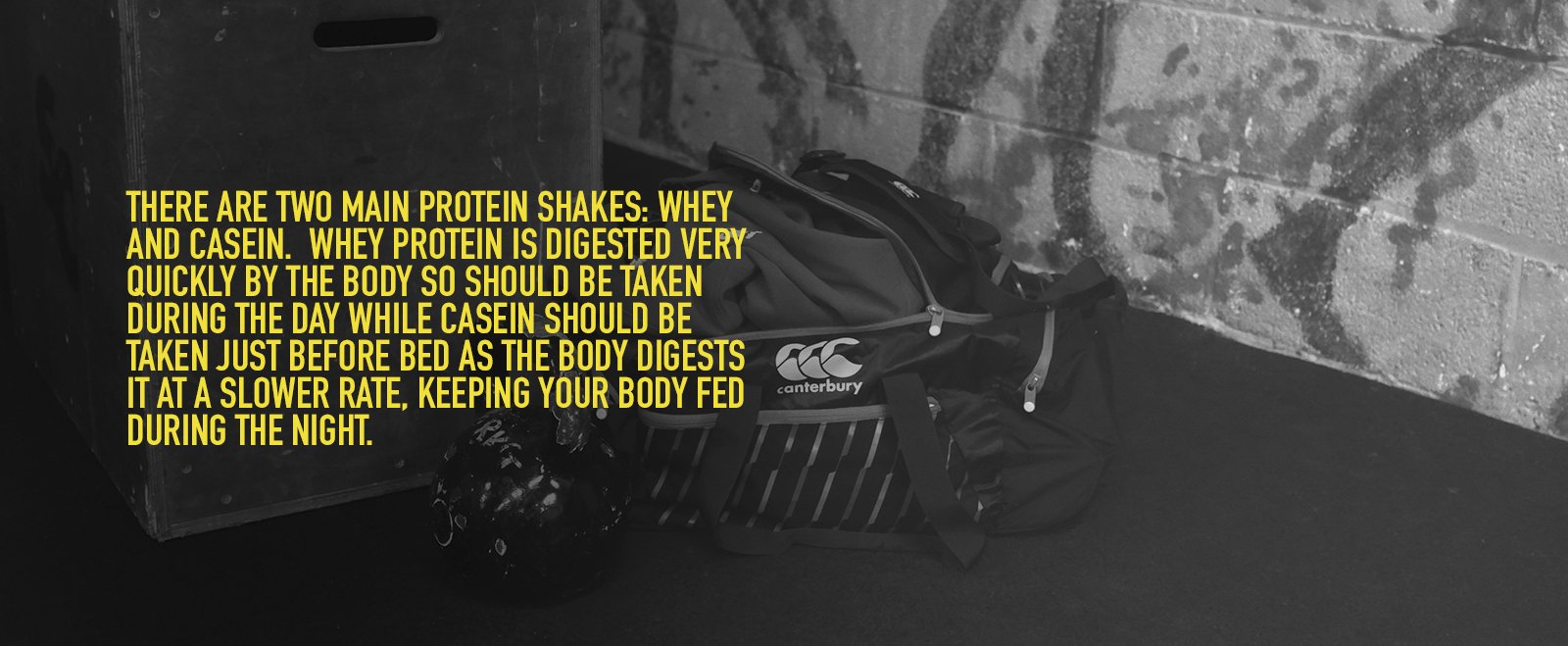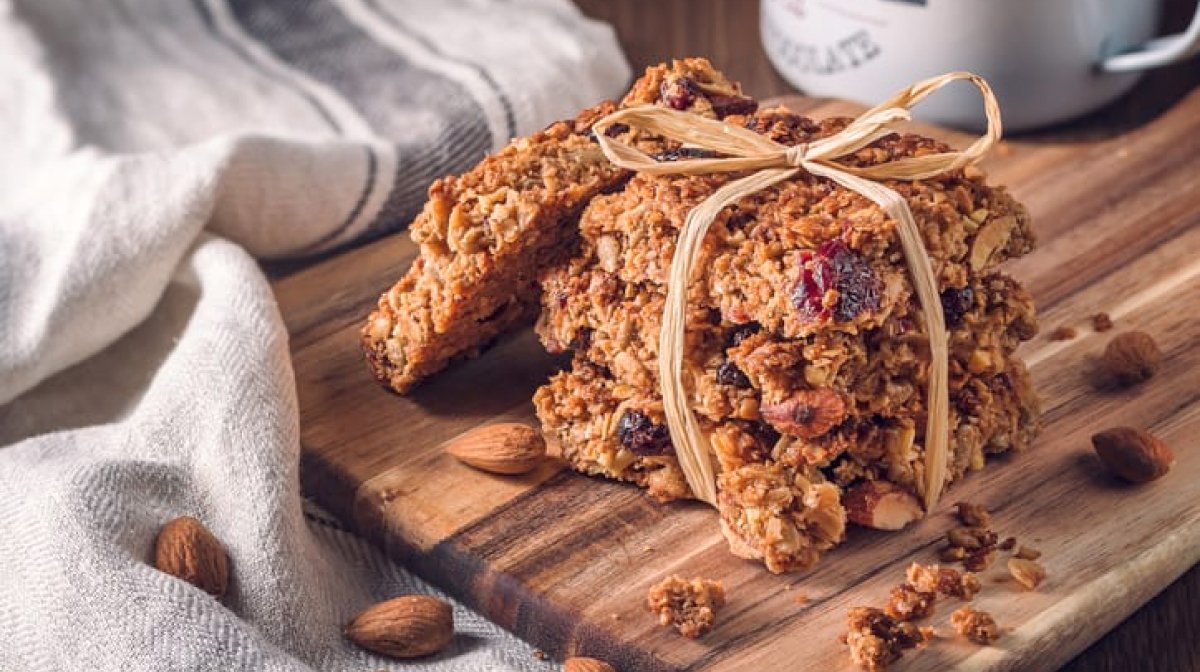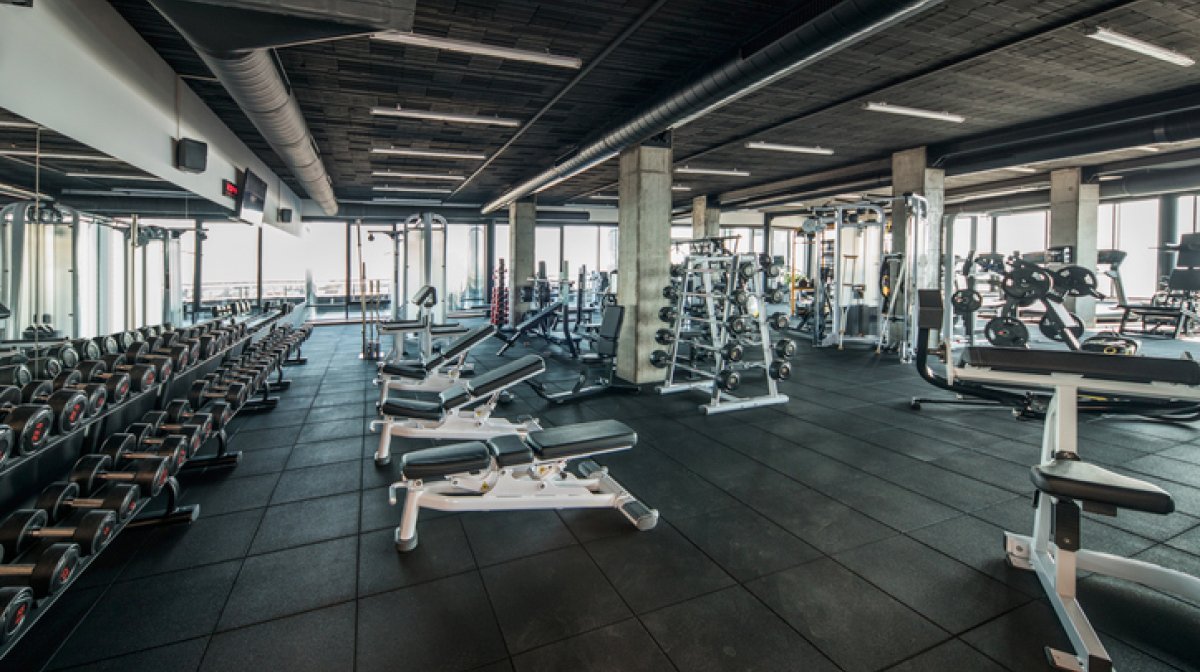Protein for Rugby players
Protein, which comprises the 20 different amino acids, is an essential part of everyone’s diet. Found in many foods, protein assists in the growth and repair of muscle and other tissue as well as being burned for energy. It comprises about 15% of body weight most of which is to be found in skeletal muscle, hence its importance to rugby players.
Once ingested, protein is broken down into its constituent amino acids, which are absorbed into the body’s various tissues where they are reassembled into protein that the body can use.
For example, haemoglobin is a protein in the blood that carries oxygen, rhodopsin assists vision and ferritin stores iron in the liver. Proteins are crucial for muscle development. For instance, when there is sufficient protein muscle mass can be maintained or increased. On the other hand, if protein intake is insufficient, then the protein is converted back to amino acids that are used to maintain essential functions (to create antibodies for the immune system, for example) so that muscle mass is lost. This explains why rugby players and other athletes need to ensure an adequate protein intake.
Protein sources:
Most people get all their protein needs from the food they eat. Dairy products like milk, cheese and eggs are high in protein as are some fish and meats. This type of protein is generally considered to be the best Vegetables, too, are an excellent source of protein, nuts, beans, pastas and potatoes being particularly high in protein content.
Rugby players, of course, need more protein than the average individual and although their daily protein requirement can be met by a good healthy diet, supplements like protein shakes can be very handy as a convenient alternative, particularly immediately after training.
Protein shakes:
Protein shakes are generally used and viewed in two lights. They are either taken because it is seen as the thing to do for rugby players or gym goers or they are completely bypassed as they are seen solely as a tool for top-level athletes or the super-keen. There is no evidence to suggest that they have any advantages over normal dietary sources of protein (other than ensuring that rugby players get the protein they need) and, indeed, some players drink a shake immediately after training when they actually need protein and carbohydrates that should be ingested in the form of normal foods.

What follows is a brief guide to what types of protein shakes are available, what they can do, when they should be taken and how much protein should be taken:
Types of protein shake:
There are two main protein shakes: whey and casein. Whey protein is digested very quickly by the body so should be taken during the day while casein should be taken just before bed as the body digests it at a slower rate, keeping your body fed during the night.
How much do you need?
There are a lot of theories about how much protein you need. The most common calculation is 0.8g of protein for every kg of body weight. However, for a rugby player looking to gain a little bit of size, this should increase to 1.8g to 2g per kg of body weight. You need to be aware, though, that research shows that amounts above this will be stored as fat. iProtein have a great list of foods with their protein levels for a gauge of how much protein you’re ingesting.
Do you need them?
If you have a hectic lifestyle and struggle to get meals in around work, training and life then a protein shake is a great way to ensure that get your daily dose of proteins. If, however, you eat well and plan your meals carefully then a shake is probably not necessary. Shakes are more convenient than preparing whole foods but do not offer the all round nutrition that whole foods do.
Watch out!
All protein powders are different and contain different amounts of calories, nutrients and other contents. When searching for the right powder for you, make sure you look at calorie content and suggested use on the product label, always keeping in mind your personal goals. Don’t just jump at the first thing that says protein.
When to take your protein:
The body’s muscles are used regularly throughout the day, so it is important that you have a regular intake of protein and regular meals. However, research shows that your body synthesises protein more efficiently after exercise, which means that you should ensure that you take in some protein immediately after a training session or game. This will help you maintain muscle mass and help repair any damage to the muscle fibres at a quicker rate.
Protein alone is not enough:
While protein provides the essential building blocks for muscle, you must not ignore carbohydrates; without them the body is unable to replenish muscle glycogen resulting in reduced energy levels. Carbohydrates are absorbed into the body and converted into glucose, the body’s fuel. So, when you are considering your diet for rugby, you must remember that while proteins build muscle, carbohydrates provide energy and a properly balanced diet providing both in the right quantities will be your best friend.









